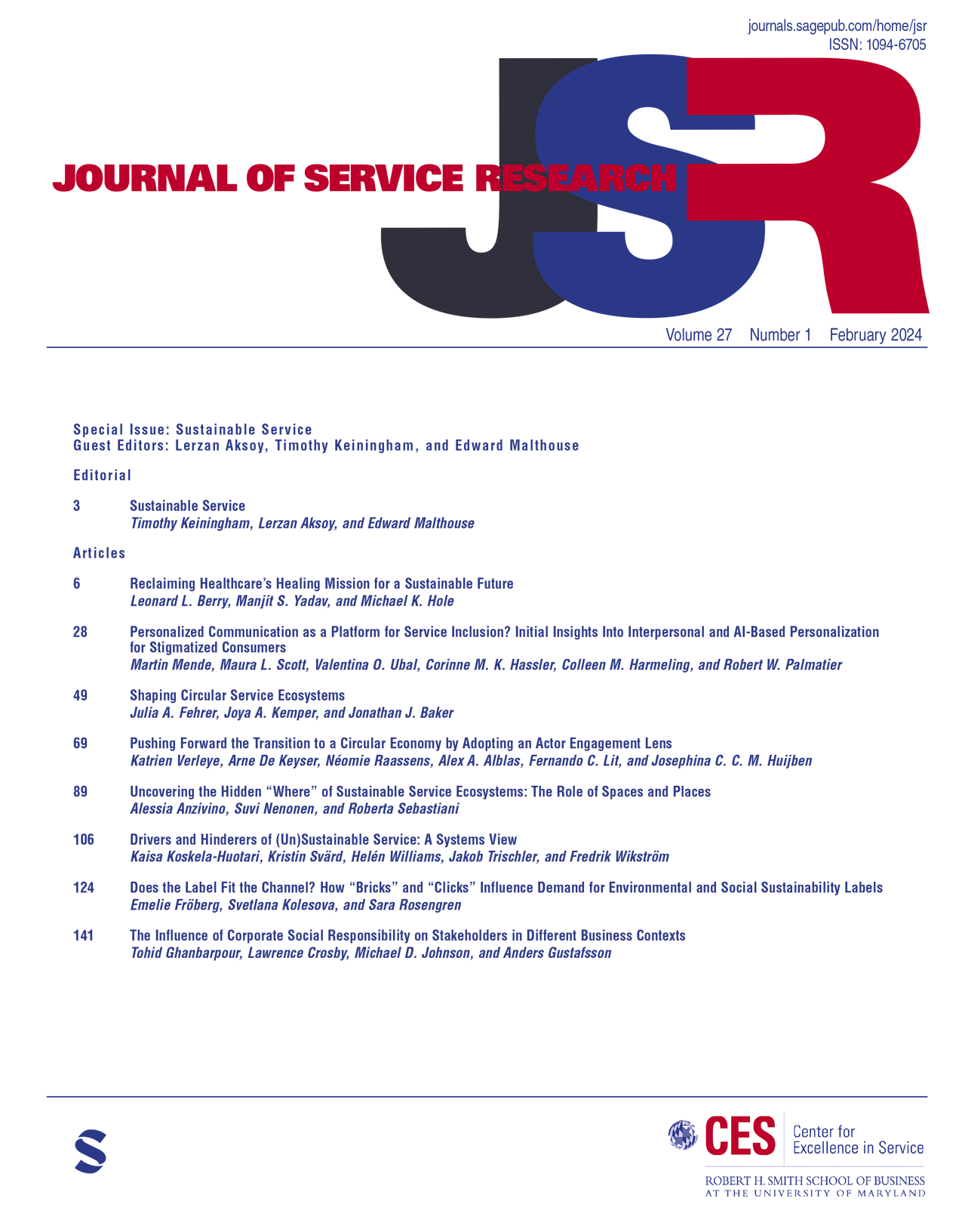网络不文明如何影响消费者在品牌社交媒体上的参与行为
IF 8.6
2区 管理学
Q1 BUSINESS
引用次数: 6
摘要
关于消费者参与社交媒体的研究正在蓬勃发展。然而,网络上的不文明行为猖獗,其对消费者参与的影响尚不清楚。目前的研究假设,当消费者与消费者之间的不文明互动发生在品牌的社交媒体渠道上时,消费者与品牌的长期互动就会减少。利用Facebook的行为数据,第一项研究证明,一个消费者对另一个消费者的不礼貌在短期内会增加受害者的参与度,但在长期内会降低他们的参与度。此外,品牌的反应会减轻这些影响。两项基于场景的后续研究证明,消费者不公平感知介导对抗应对策略,而排斥感知介导回避应对策略。这些实验还证明,品牌反应可以减轻不文明行为的一些影响。然而,尽管品牌做出了回应,但来自品牌倡导者的不文明互动可能会排斥受害者。总之,我们的工作进一步推动了消费者参与和消费者不文明理论,同时也建议从业者应该管理品牌社交媒体页面上的不文明行为。图形抽象本文章由计算机程序翻译,如有差异,请以英文原文为准。
How Online Incivility Affects Consumer Engagement Behavior on Brands’ Social Media
Research on consumer engagement in social media is flourishing. However, online incivility is rampant and its effect on consumer engagement is unknown. The current work posits long-term consumer engagement with a brand is decreased when consumer-to-consumer uncivil interactions take place on brands’ social media channels. Using behavioral data from Facebook, the first study documents that a consumer’s incivility to another consumer increases the victim’s engagement in the short term but decreases their engagement over the long term. Further, a brand’s response mitigates these effects. Two follow-up studies using scenario-based experiments provide evidence that consumer injustice perceptions mediate a confrontation coping strategy, while ostracism perceptions mediate an avoidance coping strategy. The experiments also evidence that a brand response mitigates some of the effects of incivility. However, an uncivil interaction from a brand advocate can ostracize a victim despite a brand response. Together, our work furthers consumer engagement and consumer incivility theory while also suggesting that practitioners should manage incivility on brands’ social media pages. Graphical Abstract
求助全文
通过发布文献求助,成功后即可免费获取论文全文。
去求助
来源期刊

Journal of Service Research
BUSINESS-
CiteScore
20.30
自引率
6.50%
发文量
28
期刊介绍:
The Journal of Service Research (JSR) is recognized as the foremost service research journal globally. It is an indispensable resource for staying updated on the latest advancements in service research. With its accessible and applicable approach, JSR equips readers with the essential knowledge and strategies needed to navigate an increasingly service-oriented economy. Brimming with contributions from esteemed service professionals and scholars, JSR presents a wealth of articles that offer invaluable insights from academia and industry alike.
 求助内容:
求助内容: 应助结果提醒方式:
应助结果提醒方式:


